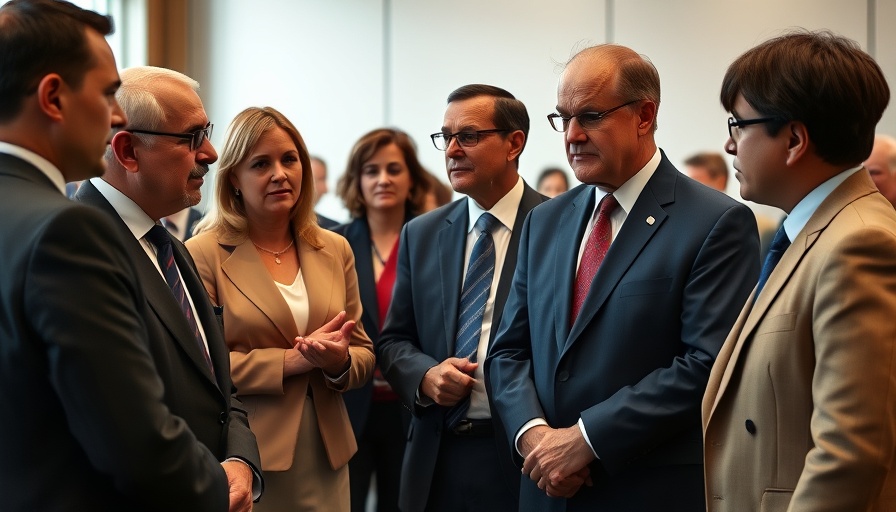
Historic Meeting Marks a New Era in U.S.-Syria Relations
In a groundbreaking step, President Trump recently held a conversation with Ahmed al-Shara, Syria's new leader, marking the first encounter between U.S. and Syrian heads of state in a quarter of a century. This significant diplomatic moment comes almost 14 years into Syria's ongoing civil war, and it signals potential changes in the nation's treatment on the global stage.
A Shift from Sanctions to Sanction Relief
Just one day prior to this meeting, President Trump proposed lifting sanctions on Syria, a move that could considerably relieve the country's economic burdens after years of civil strife. While the sanctions have been criticized for their impact on the Syrian population, Trump emphasized this measure as a necessary step towards healing and rebuilding the war-torn nation.
The Road Ahead: Challenges and Opportunities
During their half-hour discussion, Trump encouraged al-Shara to seize the opportunity for historic change in Syria, urging him to foster relations with neighboring Israel, which have been fraught with tension for decades. The meeting took place amid a summit in Saudi Arabia attended by Crown Prince Mohammed bin Salman and Turkish President Recep Tayyip Erdogan, both of whom have shown their support for al-Shara and urged Trump to take action regarding the sanctions.
Understanding Regional Dynamics and International Expectations
The context of this meeting is rich; it reflects ongoing geopolitical shifts and provides context to the role that Saudi Arabia plays in this new diplomatic landscape. As part of a broader strategy to reintegrate Syria into the international community, al-Shara's leadership after leading forces against Bashar al-Assad is a notable factor. There exists an expectation for him to distance Syria from extremist factions while catalyzing a new political discourse within the country.
What Does This Mean for the People of Syria?
The potential lifting of sanctions may offer tangible benefits to the daily lives of ordinary Syrians. After prolonged isolation, any relief could revitalize economic opportunities, improve access to necessities, and encourage international investment in reconstruction efforts. However, skeptics warn that years of devastation cannot be healed overnight, and substantial efforts will still be required to amend the deep-seated issues within Syrian society.
The Broader Implications for Global Politics
While some conservative commentators view Trump's overture as a welcome thawing of relations, others express concern over the potential meteoric rise of power in Syria and the implications it may have for U.S. interests in the region. The alliance dynamics at play with Turkey and Saudi Arabia, two nations with vested interests in Syria's future, are likewise pivotal in understanding how this political chess game might unfold.
Conclusion: A Watchful Eye on Syria’s Future
This unprecedented meeting holds significant promise for both Syria's trajectory and U.S. foreign policy in the Middle East. Observers must now keep a watchful gaze on the developments following Trump's outreach and on whether al-Shara can indeed navigate these complex waters to create a more stable and accessible Syria for its citizens. The future remains uncertain, yet hopeful, as this dialogue opens new doors for potential reconciliation in a war-weary land.
 Add Row
Add Row  Add
Add 




 Add Row
Add Row  Add
Add 

Write A Comment